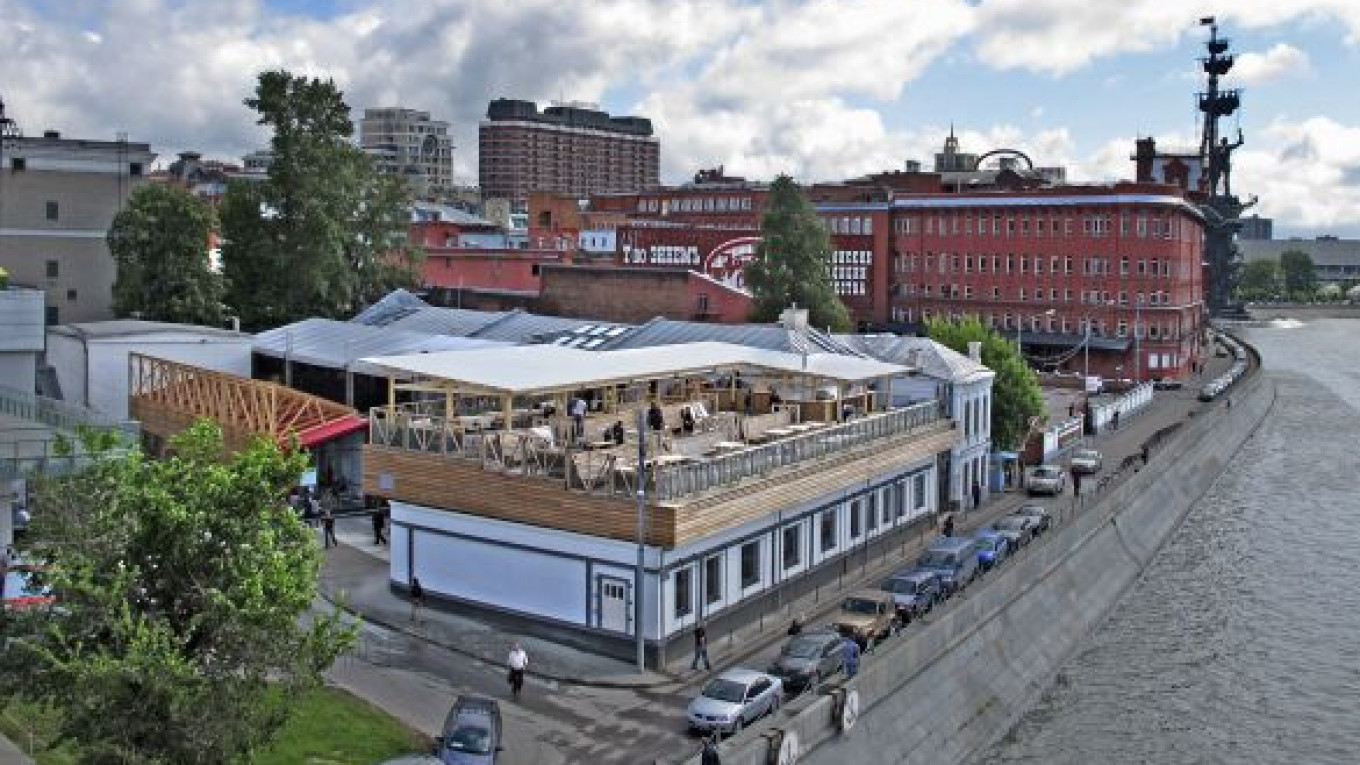The president of the new Strelka Institute of Media, Architecture and Design, Ilya Oskolkov-Tsentsiper aimed high at its recent opening by saying the center hoped to make Russian cities “more welcoming, more beautiful, more humane and more easy to live in.”
Backed by billionaire Alexander Mamut, the institute is a philanthropic venture that aims to teach a new generation of architects — for free and in English — how to solve Russia’s urban nightmare.
Rem Koolhaas, a globally renowned Dutch architect recently named one of the world’s most influential people by Time magazine, will write and direct a post-graduate architecture program at Strelka, which begins in October, and he will visit Moscow every two months to take classes and give lectures.
“I want to introduce the concept of research as the most essential basis of architectural education,” Koolhaas said in a lecture at the opening event last week, saying architects needed to focus on thinking, rather than just constructing.
Based in the garage of the former Krasny Oktyabr chocolate factory on the riverbank opposite the Christ the Savior Cathedral, the institute has been backed with $10 million by Mamut, who owns SUP, a holding company that owns LiveJournal.com and Yevroset, and by businessman Sergei Adoniev.
The garages were previously inhabited by a series of galleries, forced out a year ago after rent rises. Architects have since transformed the site, installing studios, lecture rooms and a library around the quad area where Koolhaas spoke.
The smart, contemporary design is an impressive addition to Moscow’s chaotic urban landscape, and there is a rooftop summer cafe with one of the best terrace views — of the river and the cathedral — in the city. The profits from the summer terrace and a bar downstairs will go toward funding the institute.
The former chocolate factory, which moved its pungent workshops out of Moscow three years ago, was supposed to be turned into luxury loft apartments by new owners Guta Development. But the financial crisis put an end to that, and the area has instead become perhaps the hippest spot in town, as new media, clubs and designers have moved into the redbrick buildings.
The transformation is part of a welcome trend in Moscow that has seen former industrial buildings, such as Winzavod, reutilized.
The Strelka institute though is a different beast, with the emphasis on producing students who can change the architectural landscape themselves.
Mamut and Oskolkov-Tsentsiper were photographed in front of the huge construction site, where Novoslobodskaya Ulitsa meets the Garden Ring, for the cover of Afisha magazine, a silent hint — neither of the pair say anything of the controversial construction inside the magazine — on what Oskolkov-Tsentsiper called in another interview, the “dystopian urban landscape” that are Russian cities today.
Koolhaas is no stranger to Russia and knows the city well. He visited Moscow more than 40 years ago when he came to make a film about the legendary constructivist architect Ivan Leonidov. It was then that he decided to become an architect. He has defined five crucial aspects of architecture that Russia needs to think about: public space, developing cities through heritage preservation, “thinning” in places of a disproportionately low population density, design and energetics.
“It is a truly innovational move in the world of architecture,” said Moscow Architectural Institute professor and historian Natalya Dushkin, saying the Russian system does not analyze enough before building. “If this approach takes on here, it would be great.”
The center will also see visits from leading Russian and international architects examining the problems that face Russian cities.
Separate from the course, the institute will also work as a cultural center with a series of lectures, films and workshops, all in English, over the summer.
“Summer in Strelka” will have nine modules of two-week workshops that focus on urban philosophy and visual languages.
The institute also offers intensive English-language courses related to the subjects that will be taught.
“We will be forming specialists who give answers, but we also need to involve the society that should ask those questions,” said Oskolkov-Tsentsiper about the public-based courses.
Post-graduate courses in media and design will come in later years.
Both Russians and foreigners can apply to take the post-graduate course, which is free for everyone, this year at least.
Students from Moscow and St. Petersburg may be capped at 50 percent to give provincial students a better chance, and grants for living expenses will be available.
“The fact that we provide scholarships for students is very important for us: Strelka is not a place for Rublyovka girls,” Oskolkov-Tsentsiper said, referring to a neighborhood where the Russian elite live. “Perhaps, later on we will introduce a fee, but for now we are seeking talented youth from Russian regions and even from abroad and are ready to pay.”
Information on the summer school and how to apply for the postgraduate course at the institute can be found at www.strelkainstitute.com. Visitors can also find a guide to Moscow in English. on the site.
A Message from The Moscow Times:
Dear readers,
We are facing unprecedented challenges. Russia's Prosecutor General's Office has designated The Moscow Times as an "undesirable" organization, criminalizing our work and putting our staff at risk of prosecution. This follows our earlier unjust labeling as a "foreign agent."
These actions are direct attempts to silence independent journalism in Russia. The authorities claim our work "discredits the decisions of the Russian leadership." We see things differently: we strive to provide accurate, unbiased reporting on Russia.
We, the journalists of The Moscow Times, refuse to be silenced. But to continue our work, we need your help.
Your support, no matter how small, makes a world of difference. If you can, please support us monthly starting from just $2. It's quick to set up, and every contribution makes a significant impact.
By supporting The Moscow Times, you're defending open, independent journalism in the face of repression. Thank you for standing with us.
Remind me later.


